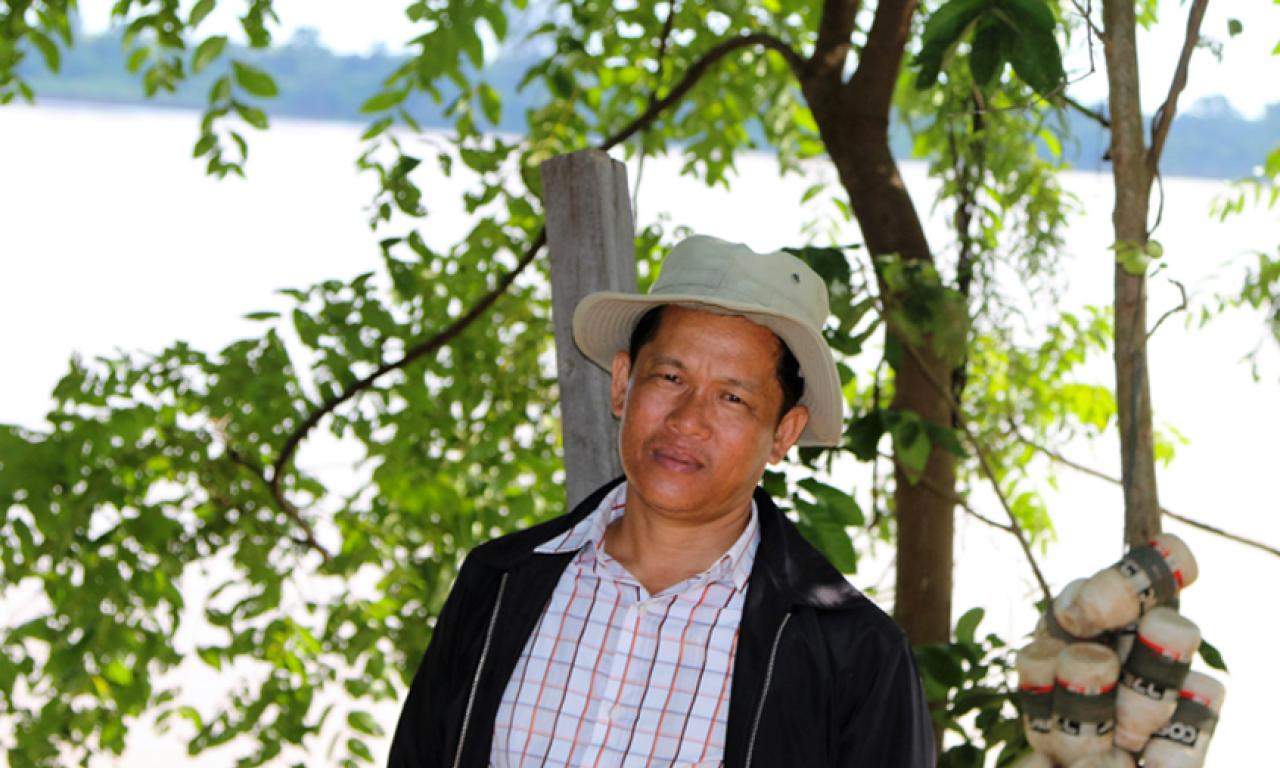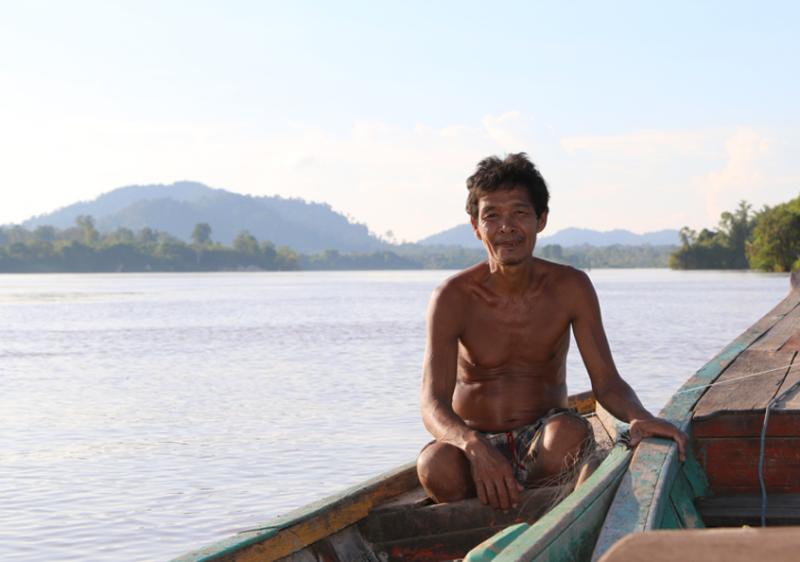
Cambodia's fisheries—some of the most diverse and expansive freshwater fisheries in the world—are under pressure from both population growth and rising demand for fish. As the need to protect these vital fisheries grows stronger, I meet one small-scale fisher who’s working to conserve fish stocks and combat illegal fishing in his rural village.
Recommended publications
- Building resilient community fisheries in Cambodia
- Community fish refuges in Cambodia: Lesson learned
Cambodia has some of the most diverse and expansive freshwater fisheries in the world. Now this valuable resource is under pressure from both population growth and rising demand for fish.
As the need to protect these vital fisheries grows stronger, I meet one small-scale fisher who’s working to conserve fish stocks and combat illegal fishing in his rural village.
Pengly, a small-scale rice farmer and fisher from Khe village in northern Cambodia, once knew little about fisheries conservation.
However, that all changed in 2013 when his village members elected him to be a leader of the management committee for the Anlong Kol 46 fish conservation zone. “After everyone pointed at me, I thought, okay they trust me so I have to commit,” Pengly said of his election.
Anlong Kol 46 is one of five conservation zones established in the Stung Treng Ramsar Site, a 37 km long ‘wetland of international importance’ in the Upper Mekong River that, according to local fishers, has experienced a visible decline in fish stocks in recent years.
In his leadership role, Pengly works with community members to actively manage the conservation zone, which includes deep pools and fish habitats that are designated as fish refuges during the dry season. These no-fishing zones promote the growth and rejuvenation of fish stocks, while reducing overexploitation of fish.
This work is part of the WorldFish-led Integrating Fisheries Management and Wetlands Conservation project (2011–2017). Funded by the Critical Ecosystem Partnership Fund, Foundation Ensemble and Japanese Ministry of Foreign Affairs, the project works to empower local communities to co-manage fish resources in partnership with government agencies and civil society.
As a committee member, Pengly attends workshops and training sessions on environmental management and encourages community members to help manage the conservation areas together.
“If we protect the fish, we are protecting ourselves. If we conserve this area, it will benefit us, so when we don’t have enough food we can go into the water and there will still be fish to catch.”
Protecting the country’s fisheries are a national concern, as fish accounts for 61 percent of households’ animal protein intake and is the second most consumed food item after rice. And it’s an even greater concern for households which rely on fish for their livelihoods, like many of the 12,000 individuals living in the Ramsar Site.

Despite conservation efforts, destructive, illegal fishing practices still occur within the Ramsar Site, contributing to the depletion of fish resources. Compounding this problem over the last decade are upstream developments such as hydroelectric dams that have caused habitat degradation and impede the migration, spawning and movement of fish.
To combat illegal fishing, the project works with local communities by providing technical support and supporting increased joint patrolling of the Mekong waterways (by community members, Ramsar Site rangers, local authorities and the Fisheries Cantonment staff).
Not content to sit by, Pengly joined the Community Fisheries patrol team before accepting the Ministry of Environment’s offer to become a Ramsar Site Conservation Eco-Ranger in 2015. As a ranger, he disseminates information about conservation practices, the fisheries law, and rules and environmental regulations related to the Ramsar Site.
In the last year, increased participation by all stakeholders has had a positive impact on the area. In particular, joint patrolling has led to a decline in illegal fishing activity. “Fish stocks have become more abundant in the area,” Pengly said.
As more community members get involved, a greater awareness is being shared for how conservation can improve not only the natural environment, but their own livelihoods as well.
This increased awareness is critical as a large proportion of Cambodians rely on wild fish for food and nutrition security, and households often sell their surplus fish catch in the market to supplement their incomes.
With this in mind, Pengly believes that all individuals, be they fishers or farmers, have a duty to protect the fish in the Mekong River.
“We need to stress conservation for all, and all for conservation. The benefits are for all of Cambodia as well as other countries who rely on the fish of the Mekong River.”